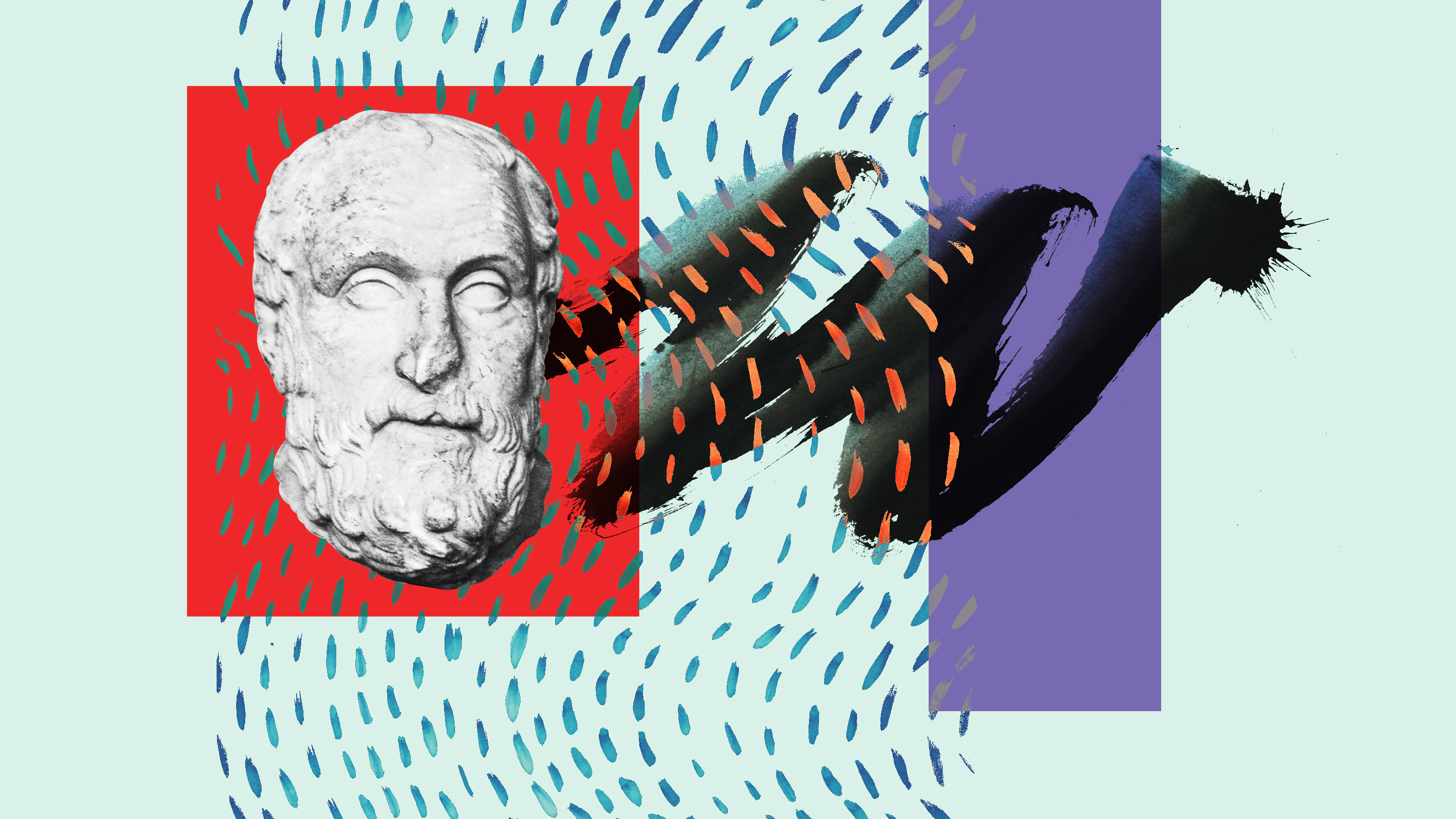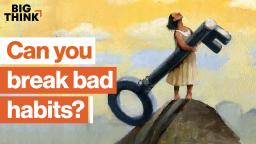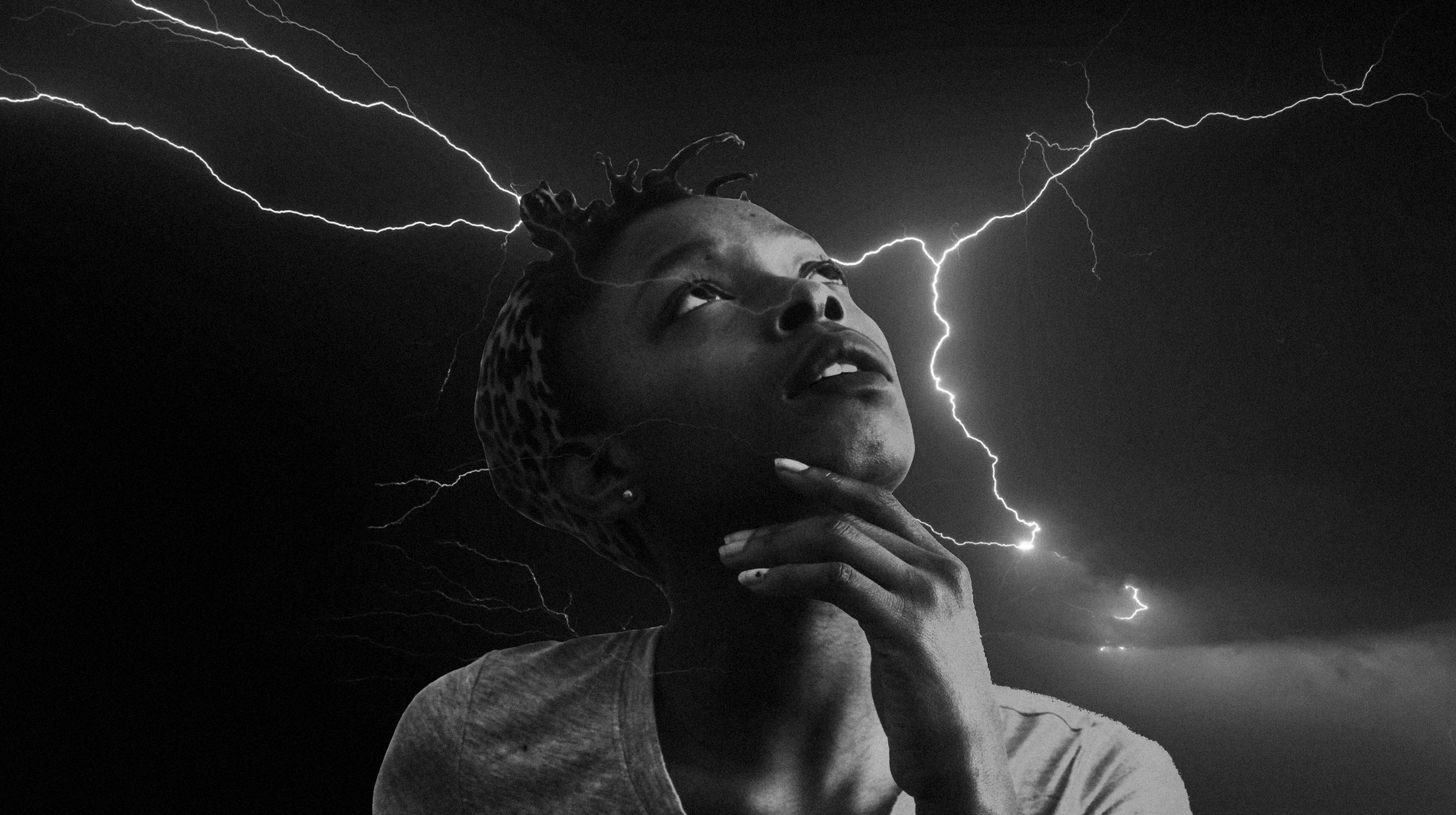LAWRENCE KRAUSS: I like to keep an open mind but not so open that my brains fall out. And that's the key point. We have to skeptically assess the information we receive. We can't be gullible because when we get a lot of information, it's absolutely certain that some of that information is wrong. And so we have to always filter what we get. And we have to ask ourselves the following question: "How open does my brain have to be to accept that information? Does it have to fall out?" And by that, I mean when someone tells you something you have to ask "Is this consistent with my experience? Is it consistent with the experience of other people around me?" And if it isn't, then probably there's a good reason to be skeptical about it; it's probably wrong. If it makes predictions that also appear to be in disagreement with things that you observe around you, you should question it.
And so we should never take anything on faith. That's really the mantra of science, if you want, that faith is the enemy of science. We often talk about a loss of faith in the world today. You don't lose anything by losing faith. What you gain is reality. And so skepticism plays a key role in science simply because we also are hard-wired to want to believe. We're hard-wired to want to find reasons for things. In the savanna in Africa, the trees could be rustling and you could choose to say, "Well, there's no reason for that." Or, "Maybe it's due to a lion." And those individuals who thought there might be no reason, never lived long enough to survive to procreate. And so it's not too surprising, we want to find explanations for everything. And we create them if we need to, to satisfy ourselves, because we need to make sense of the world around us. And what we have to understand is that what makes sense to the universe, is not the same as what makes sense to us. And we can't impose our beliefs on the universe. And the way we get around that inherent bias is by constantly questioning both ourselves and all the information we receive from others. That's what we do in science and it works beautifully in the real world as well.
MICHAEL SHERMER: The problem is this. None of us has the truth. The only way to find out if you're deceiving yourself or not, if you've gone off the rails, if you're wrong in some way, is to listen to other people who disagree with you. I started encountering other people that disagreed with me. You know, we-never-went-to-the-moon people, conspiracy people, whatever. And I thought, "Okay, so how do we know, if I don't know what's coming down the pike say in 10 years from now, if I was gonna teach my students how to think critically, what are the key points, like just basic questions they could ask?" So, it begins with one: How reliable is the source of the claim? Here's the claim, how reliable is it? What's the evidence for it? What's the quality of the evidence? Where does it come from? Who said that? Is this some fake news, alternative site thing, or is it The Wall Street Journal or The New York Times? The source really matters. Has anyone tried to disprove the claim? This is super important because everybody thinks they're right and every website has testimonials about this product or that idea. The question is not "What do your supporters think?" but "What do the people who don't agree with you think?" Because that's what I wanna know. Has anyone run an experiment to try to disprove your theory? And so in science, this is as basic as it gets. Karl Popper called this the Principle of Falsification. That is, we can't ever prove a theory correct, but we can disprove it by having an experiment that shows it's wrong.
So, if you can't falsify it, what are you really doing? And my favorite story on this, by the way, let me just have a little sidetrack here from Karl. He's got this great little section in his book "Demon-Haunted World." There's a dragon in my garage. I have a dragon in my garage, do you want to see it? Come here, let me show you. I pull up the garage door. I go, "Look, can you see the dragon?" And you look in and you go, "Well, no, I don't see anything." "Oh, oh, oh, sorry. This is an invisible dragon." "An invisible dragon?" "Yeah, yeah, yeah, he's invisible." "Well, what if we put some flour on the ground and then we'll get the footprints of the dragon?" "Well, no, see, this is a special dragon that hovers above the ground; it floats. It's an invisible floating dragon." "An invisible floating dragon, okay. Oh, wait, I have some infrared cameras here. We can detect the heat from the dragon." "No, see, this is a cold-blooded dragon. It doesn't give off any heat." "What about the fire? We can detect the fire that the dragon spits out." "Nah, it spits out cold fire." You see the problem? If there's no way for me to falsify that there's a dragon there, what's the difference between an invisible floating heatless dragon and no dragon at all? None. And of course we can apply this to God or any other supernatural paranormal type. If I can't debunk it, if I can't falsify it, if there's no way to test it, then how will we ever know it's true? This is the core of the baloney-detection kit. We have to be able to get to whether it's true or not, in some way so it's not just my opinion versus your opinion and we shout at each other.
Then we want to know, does the claimant's personal beliefs somehow enter in? Because of course, we all have personal opinions and beliefs about things. My politics, my religion, my ideology can influence me. It doesn't make it wrong but it's good to know if somebody has an agenda. So, when you watch Fox News, you know that they have an agenda, for sure. Or there's other sources on the left that have a liberal agenda, maybe NPR, who knows. But you see, it's good to know that, just in case, so when you hear the facts, you go, "Well, maybe, but I know this guy has an agenda." So, that's the kinda thing. Does the new idea being proposed account for the same amount of information that the old idea does and some of the new anomalies that the old idea can't explain? So, people offer theories, so-called alternative theories of physics, for example, and they always send them to me going, "Hey, listen, I'm not good at math but if you help me with the math I'll share the Nobel Prize with you." Right. I don't do math and physics so you might take it to the local high school physics teacher before you announce that you've made the greatest discovery since Newton and Einstein. The problem with that is the current theories do pretty well at explaining almost everything. Not everything, so there's always anomalies we can't explain. So maybe there's some new theory coming down the pike that might account for all the old theories, explanations and the new anomalies, the anomalies that the old theory can't explain. Maybe. But again, we gotta be able to test it first.
So, those are the kind of things. Does the claimant play by the rules of science, the rules of the field that you're in, for example. Again, these alternative physics guys come to me. Don't come to me, I'm not a physicist. Did you at least ask the local high school physics teacher if this makes any sense? Because if you have no training, you don't know all the mistakes that people in the past have already made to get to where they are now. And if you're starting here without the background, you're gonna make lots of mistakes. So, these are the sorts of things that any good baloney-detector should know.
BILL NYE: I've been messing around with this idea of cognitive dissonance. This is to say, you have a worldview, you're presented with evidence that conflicts with the world view, so you either have to change your worldview, which is hard because you've lived your whole life with it, or you just dismiss the evidence so that you don't have this discomfort, this conflict in your mind, this dissonance. And that's what I'm working with right now. And apparently the way to overcome that, is to say, "We're all in this together. Let's learn about this together." Present the conspiracy theorist with the idea that he or she may be rejecting evidence because it's just so uncomfortable, and you're in it together, we're in it together. I'm uncomfortable too. And just understand it's a process. Somebody who has a worldview that's inconsistent with evidence, and I may have some, it takes a while for you to turn around. Like the example of palm reading or astrology, it's not something people reverse their ideas about immediately. It takes, in my experience, it takes about two years for somebody to sort of look at palm reading, look at cold reading, or tarot card reading, for a while and then realize that these tarot card readers, palm readers, are just taking information that you've given them, the client's giving them, and feeding it back to you.
We all tend to go, "Well, look at the facts, change your mind," but it takes people a couple years to change their mind. So, my recommendation, stick with it. You'll get frustrated, the person will get frustrated, but present the idea of cognitive dissonance. This is my latest idea about a way to work together to a scientific understanding.
KRAUSS: Science doesn't prove what's absolutely true. What it does, is prove what's absolutely false. What doesn't satisfy the test of experiment, we throw out. What remains may not be true, but we shrink it down, as Sherlock Holmes would say, "And what remains after all of that is done, is likely to be true." So, many sources, question what you see, and whether it's consistent with what you already know, and be suspicious of your own likes and dislikes when you accept information. That's probably the reason we shouldn't, when we turn to the internet, go to echo chambers and just read the sources that we like. Now, having said that, if you look at many sources, you could also quickly decide which ones are not reliable and throw them out. If they're not reliable in one case then you should be highly suspicious of them in the future. So, we all turn to different sources that we think are more or less reliable based on our past experience. Try that, and I think it's one great way to filter out a lot of the nonsense on the internet.
When I talk about being skeptical, it is important to recognize that you can be surprised. And something that you don't think is sensible, can end up being sensible. That's the way we learn things in physics. So, when someone presents you with an idea that may seem strange, it's reasonable to be skeptical of it but it's worth pursuing long enough to see if it might make sense and to listen to arguments that might be convincing, that might cause you to change your mind. In fact, there's a great school of pedagogy that says, "The only way we actually learn anything is by confronting our own misconceptions." So, once again, while it's reasonable to be skeptical of external information, if you're always skeptical of your response to information, and what your misconceptions are and what your prejudices are, then you will both guard yourself not to accept nonsense but also you will be willing to realize that sometimes what you think is skepticism, is really myopia.
DERREN BROWN: Where I think skepticism, in its broad, modern, popular sense, "I just don't believe in God, don't believe in this don't believe in that," where I think it has its limits—and I speak very much as a skeptic myself and as an atheist, as I said—where it is important to realize the edges of its usefulness, is where those things that may not be objectively true but can be psychologically true, in inverted commas. In other words, psychologically resonant to the path of living, and what we take in life, and what's important to us and what's helpful. So, that's what you don't wanna throw out. You don't wanna throw out that baby with the bath water. So, in religion, for example, those things that are easily knocked down, if you're an atheist, they're easy to kind of make fun of and disprove, those things are also, they kind of often are straw men to knock down, but they can often be pointers back to something that is psychologically useful. They're signifiers of something. If you take what happens with religion, is that you have something that happens, an experience of transcendence or a kind of a thing that happened historically. Nothing magical or supernatural, but just for people at that time, a connection to the sense of the transcendent, whatever that was, a message or something. And then as that moves out of living memory, to re-create it, a bunch of practices, and dogmas and things are formed to try and recreate that feeling. And that becomes now a thing of belief rather than a sort of knowledge that it was at the time. And then to sustain and protect that belief, an institution is sort of created, and developed, and becomes politicized, and powerful, and monetized and all of those things. And then it moves into a world where we are nowadays, where things have to be sort of proved with evidence. So, it starts to try and come up with evidential arguments that somehow never quite really sort of work. So, you do end up with a thing that's easy to knock down but that can miss the fact that there's something at the heart of it, which maybe is useful. Maybe those narratives around religion are useful to us psychologically. Maybe they have an archetypal, or a mythological use, that it would be a shame to dismiss because we feel the absence of those things. It's the very fact we turn to psychics, and fortune tellers, and become terrified and lonely around death. Those things happen because we've lost touch with some of those myths and some of those more resonant narratives. So, I think being a little skeptical about skepticism itself and the easy narratives that it forms, is also, I think, very useful.






